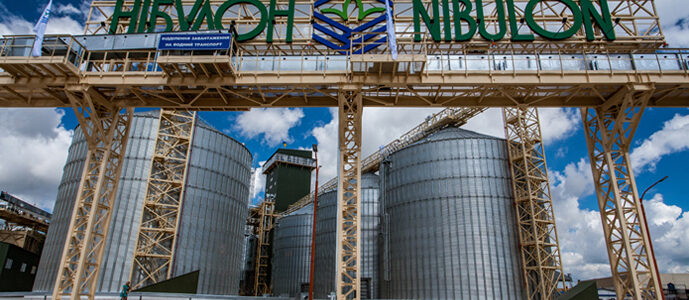
One of Ukraine’s largest grain market operators, Nibulon, has reduced its staff threefold, retained four areas of operation, focused on the introduction of new digital services and technologies, and plans to return to its pre-war share of 10% of Ukraine’s grain exports by increasing exports this year to 4 million tons from 2.5 million tons last year, said the company’s owner and CEO Andriy Vadatursky.
“Before the war, the company employed 6,000 people. When I was waiting (for the core team to move from Mykolaiv to Kyiv – IF-U), there were 4,000 employees. Now there are a little less than 2,000. This is the path to optimization and automation of numbers. When people ask, ‘What has changed for you?’, I answer that everything has changed – the entire business model has changed,” he said at the Forbes Agro 2025 conference in Kyiv on Friday.
Vadatursky noted that Nibulon currently has four main business areas: agricultural production, logistics, trading, and digitalization.
According to him, Nibulon is developing agricultural production on slightly more than 50,000 hectares, while before the war, the agricultural holding operated on 82,000 hectares. Its lost agricultural land is located in the Luhansk and Kharkiv regions. In addition, before the war, the grain trader owned 28 elevators, 5 of which have been lost and 13 blocked. Nibulon’s logistics company currently operates 167 motor vehicles and 200 grain cars.
According to the company’s owner, the agricultural holding currently grows approximately 300,000 tons of grain on its own. However, in 2024, Nibulon was able to export 2.5 million tons of grain, and in 2025, it plans to supply up to 4 million tons to foreign markets.
“It is no secret that Nibulon entered the war with $530 million in loans. Currently, we have confirmed losses of $440 million, which, in addition to the loss of land and elevators, include the loss of about 140,000 tons of grain,” Vadatursky said, adding that in three years of war, the agricultural holding was able to earn $250 million and repay $160 million in debts to banks.
He assured that Nibulon intends to continue servicing its loans in 2025, despite the fact that 68% of its assets are currently not operational.
Vadatursky explained that during the war, Nibulon will focus on the efficiency of its businesses, their expansion, and vertical integration. At the same time, the main criteria will be efficiency and “streamlining by removing all inefficient components.” In addition, the grain trader will focus on the introduction of new technologies, digitalization, and artificial intelligence.
“We are targeting approximately $60-80 million in EBITDA to be able to repay all loans. To this end, we are doing everything we can to increase the amount of grain that passes through our system. And we have the ambition to return to our pre-war share of exports, which was about 10-12% of Ukraine’s total grain exports, by providing more competitive services than before the war and earning money through the introduction of technologies and increased efficiency,” the owner of the agricultural holding concluded.
Before the war, Nibulon cultivated 82,000 hectares of land in 12 regions of Ukraine and exported agricultural products to more than 70 countries around the world. In 2021, the grain trader exported a record 5.64 million tons of agricultural products and supplied record volumes to foreign markets in August (0.7 million tons), in the fourth quarter (1.88 million tons), and in the second half of the year (3.71 million tons).
After the war began, the company was forced to move its headquarters from Mykolaiv to Kyiv.